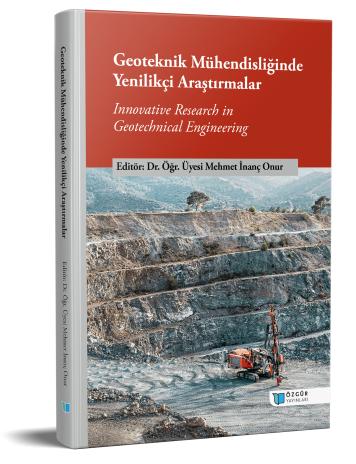
Geotechnical Study of the Anadolu District's Urban Transformation Area in Isparta Province
Chapter from the book:
Onur,
M.
İ.
(ed.)
2023.
Innovative Research in Geotechnical Engineering.
Synopsis
To predict the effects of a natural disaster, such as an earthquake, that may occur in urbanized areas and to minimize or eliminate the damages, it is essential to have a good understanding and evaluation of the geological and tectonic characteristics of the region. This can be achieved by conducting necessary soil investigations, analyzing not only the engineering properties of the soil but also the dynamic, local, and environmental effects of potential hazards and risks before construction. Additionally, having knowledge of these characteristics enables the creation of urban plans for new settlements, preventing improper land use. It is anticipated that the urban transformation project planned for the settlement area of Anadolu Mahallesi in Isparta province, which is located in the first-degree earthquake zone, may encounter issues related to bearing capacity and settlement due to the loose alluvial soils affected by seismic influences. For this reason, the geological and geotechnical characteristics of the soils in the Anadolu Mahallesi study area have been examined. To achieve this, 10 geotechnical boreholes were conducted in the study area, and the consistency and density of the soils were determined through the Standard Penetration Test and blow count. Based on these data, the suitability of the soils in Anadolu Mahallesi for settlement was evaluated by performing dynamic and static bearing capacity and settlement calculations. According to the obtained results, it was concluded that the study area consists of moderately dense and loose units, and the bearing capacity and settlement criteria would be exceeded under seismic conditions. This study also forms a geotechnically significant basis for the urban development plans to be implemented in the city settlement area.

